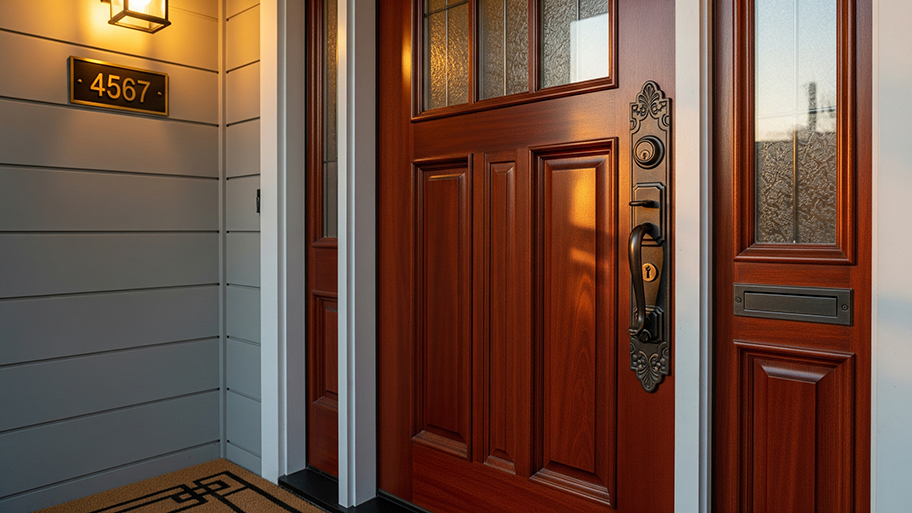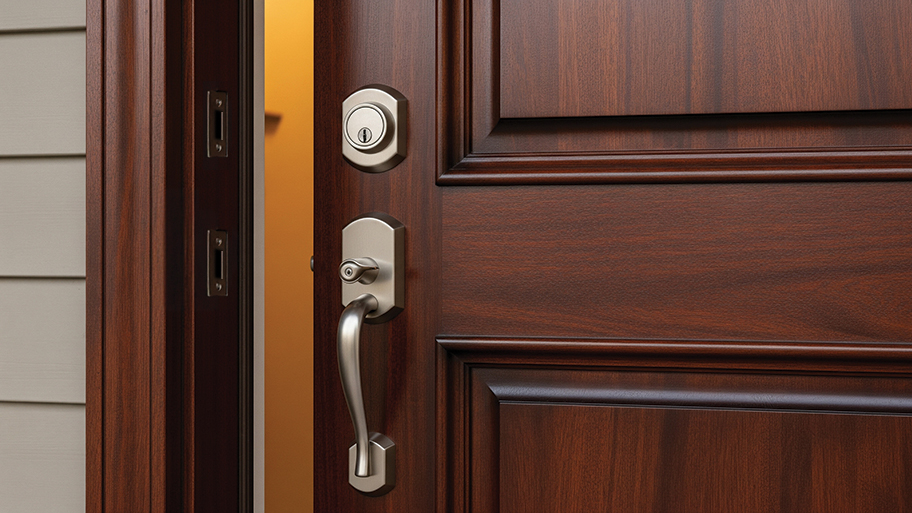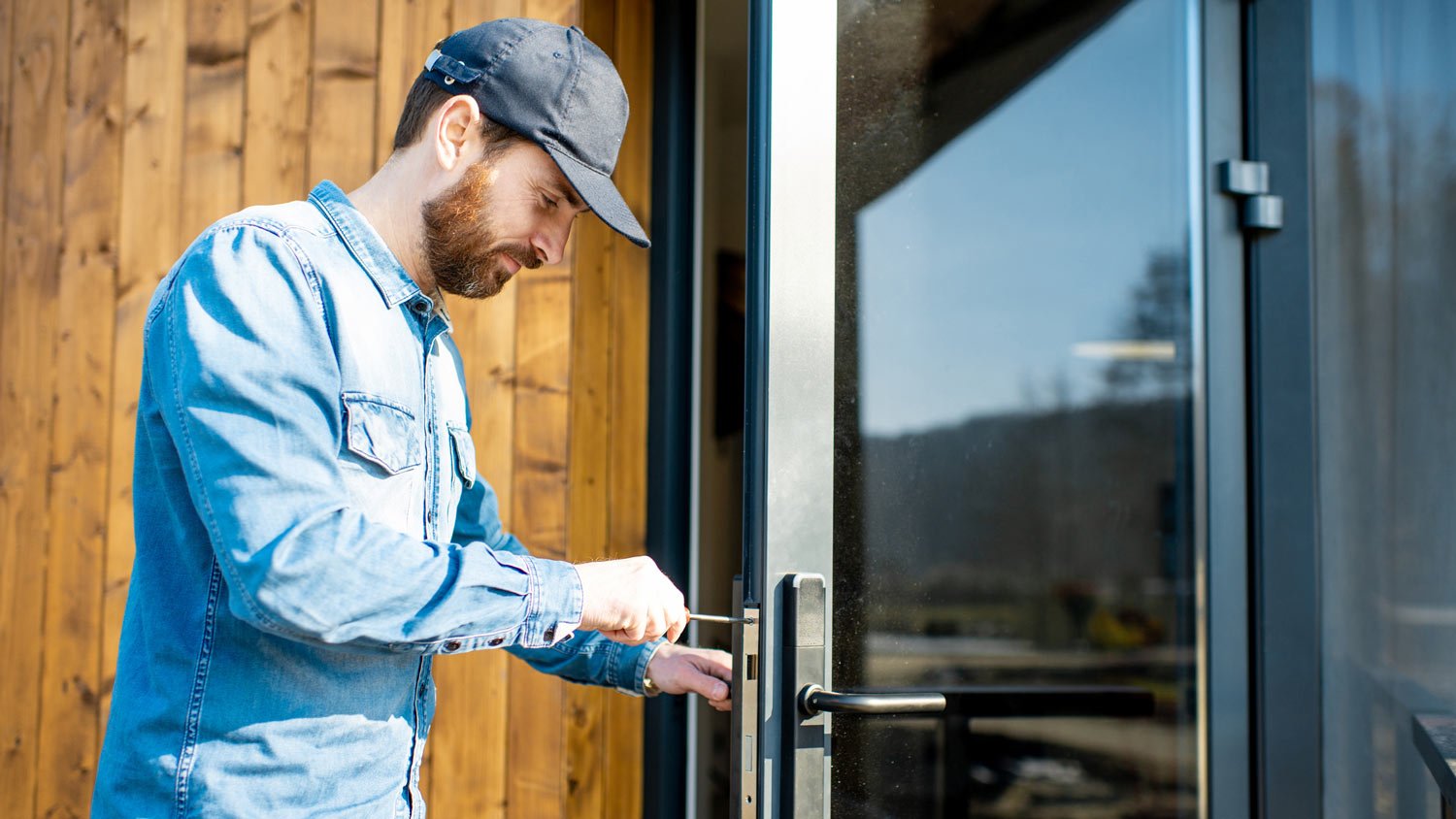
Wondering how much a locksmith costs? Discover locksmith prices, key cost factors, and tips to save on home lockout, rekeying, and installation services.
These nine tips will help you to steer clear of locksmith scams and find a reputable pro


Seeking an emergency locksmith can have you rushing for the first name on Google, but it’s wise to keep your business under lock and key until you know who you’re hiring. While there are many legitimate locksmiths out there, there are also some imposters who are less than reputable. The good news is, looking out for these red flags can help you steer clear of any locksmith scams. Keep the following nine tips in mind the next time you’re locked out of the house and need the help of a pro pronto.
If a locksmith company uses an 800 number instead of a local phone number, this is pretty suspect. It's often a sign you're dealing with an out-of-state call center, which is a red flag for a locksmith scam.
Be on the lookout for locksmith companies that answer calls with generic phrases like “locksmith services” rather than a specific name. If a locksmith won’t provide the legal name for their business, find another locksmith.
One more thing: If you find a locksmith with a "local" address, search for that specific address online. See whether any other businesses use that same address. Ask the company to confirm its location when you call.
Locksmith scam artists typically operate out of unmarked, unbranded vehicles. If they claim to work for a certain locksmith company, then that company’s logo should be on their car. When it isn’t, that’s a reason to give them the side-eye.
When the locksmith arrives, ask for their identification, including a locksmith license if your state requires it. A legitimate locksmith should also ask you for identification to verify that they are unlocking a home or car that indeed belongs to you.
Only 15 states require locksmith licensing, making it a crime to advertise or work as a locksmith without proper credentials:
Alabama
California
Connecticut
Illinois
Louisiana
Maryland
Nebraska
New Jersey
Nevada
North Carolina
Oklahoma
Oregon
Tennessee
Texas
Virginia
If you live elsewhere, be super skeptical of locksmiths who claim to have a license. Chances are, they’re putting up a front.

Fake locksmiths typically quote prices between $15 and $40 to start. They bait-and-switch customers by advertising low prices, then price gouge after they arrive. The usual claim is that the job is more complicated and will cost more. While it’s not abnormal for prices to change a bit if a job really does become more complicated, the suspiciously low price at the beginning is the giveaway.
When you’re paying to have a local mobile locksmith come to you, this comes with overhead costs. Tools, licensing, training, and transportation aren’t cheap. No reputable locksmith could charge $15 and make enough to keep their business afloat. Most locksmith companies will charge at least $60 for the service call.
Find a reputable locksmith near you who is transparent about pricing from the start. Of course, things can change when your locksmith sees the problem—like the type of door lock and what work it requires—but, if that happens, a reputable locksmith should be able to give you an in-depth explanation of what’s changed and why. Before you allow them to begin the work, get a detailed cost breakdown in writing and have them note any changes that arise.
If you’re locked out, be wary of locksmiths who insist on drilling or replacing the lock. Most experienced locksmiths possess the skills and tools to unlock nearly any door. You will almost always have the option to either rekey or replace the lock. Drilling is typically only necessary to open high-security locks.
The best way to know whether a locksmith is trustworthy is to research them in advance. Call them, ask them detailed questions, and check their reviews. Once you find a reputable locksmith who checks off all the boxes, save them in your phone for future use.
In the meantime, practice proper door lock maintenance. Learning how to maintain your locks will prevent locksmith scams by eliminating your need in the first place.
Also—if you’re sick of losing keys (or having your kids lose them), a keyless lock is as good as a regular deadbolt in terms of security. This is an upgrade to consider if you’d rather not deal with any future lock-based emergencies.
Ask these questions before hiring a locksmith. If a business can’t provide detailed answers, don’t hire them.
Where are you located?
How will you get into the house?
Will you need to drill my lock? Can you tell me the exact process?
Can you give me an estimate? What factors will cause this price to change?
Do you require cash, or can I pay with a card?
What’s the name of the locksmith who will be coming?
If you think you were overcharged or scammed by a fake locksmith, contact your state attorney general's office. They may be able to help mediate or even recoup funds in some cases. Now that you’re aware of the game that gets played, hopefully it won’t come to that.
While not always easy, it’s definitely possible for the average person to make most door lock repairs. Not to mention, you can save a lot on costs by going the DIY route. For example, rekeying your door lock costs a maximum of $25 to do it yourself and up to $160 to hire a pro.
However, there are several instances in which hiring a locksmith near you is both easier and the only option. For starters, many smart locks require professional installation or setup per warranty terms. You also probably won’t have access to the right tools for repairs if you’re suddenly and unexpectedly locked out of your home.
You’ll pay anywhere from $50 to $500 to hire a locksmith, depending on the services rendered. Larger, more involved projects are typically more expensive. The cost to change locks, for example, ranges from $130 to $200 on average. Remember that hiring a pro during peak hours or for emergency calls will also incur additional fees of up to $250.
Audrey Bruno contributed to this piece.
Me and my wife Wendy Wilkinson want to give a huge shout out to Westside Connections Cornhole and their founders Deebo Brown and Jennifer Lyn. Thanks to them and their sponsor Family Locksmith, we were able to finally get a key(s) made for our truck that were lost almost 2 months ago. Some...
A very good company to work with: professional, reasonably priced, and willing to go above and beyond to satisfy the customer. We had rotted wood and new aluminum roof trim installed, and the result is perfect and done on time. I definitely recommend them and will certainly use them for...
We were impressed with the locksmith's expertise and ability to fix our garage door quickly. Highly recommend!
The service was excellent! Norwin's trap caught the dangerous bob cat in short order. I am very thankful!
Brandon Burnette did such a great job. I'm so happy I had him as my worker today. Very nice and friendly young man. 10 star in my book.
We had Brandon from DeMarks come out and power wash our siding. The house is 26 years old and had never been washed before. I can not say enough about how hard he worked to get every inch of the house sparkling clean. Not only did he wash the siding, but the soffit, fascia, and gutters as...
We had LHR install a new roof and gutter system. While they were not the cheapest, they were considered the most reliable and fetish for using only high-value products that would last for many years. Additionally, they were highly professional and never tried to push their services or any...
The crew showed up on time and finished the home theater installation as promised. The guy in charge of the team made sure it was done correctly, right down to the smallest detail. Highly recommended!
On time, did a great job. Real good guys.
Great service. The office was very responsive, even when I had to reschedule. The locksmith showed up on time, walked me through my options, and did the work well. Would definitely use them again.
From average costs to expert advice, get all the answers you need to get your job done.

Wondering how much a locksmith costs? Discover locksmith prices, key cost factors, and tips to save on home lockout, rekeying, and installation services.

Discover the average deadbolt installation cost, price factors, and tips to save on your project. Learn how to budget for secure home upgrades.

Uncover the cost of lock replacement. Discover labor, materials, and cost-saving tips for your next lock replacement project.

Is your key stuck, and you need to know how to lubricate your lock? Look no further. This article outlines 10 ways to unstick a lock without calling a locksmith.

Our guide walks you through how to rekey a lock in 11 easy steps, plus helps you decide when to rekey a lock and when to replace it.

Need new locks or locked out? You probably have questions about finding a reliable locksmith. This guide can help you hire a professional you can trust.